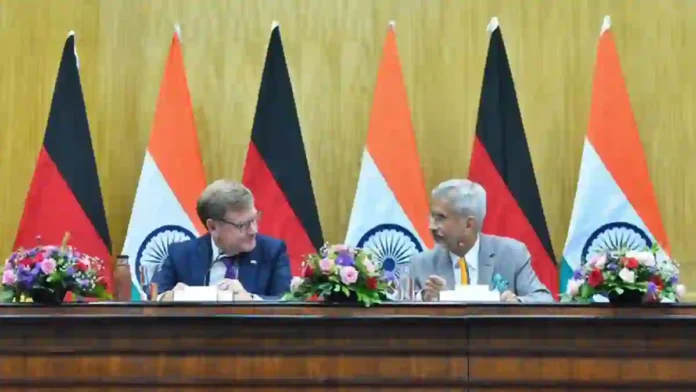India’s External Affairs Minister S. Jaishankar emphasised the urgent necessity for a deepened India-Germany relationship in light of major global transformations and growing volatility in international economic and strategic affairs.
Speaking alongside German Foreign Minister Johann Wadephul in New Delhi, Jaishankar underscored that dramatic shifts in the global strategic landscape and pronounced economic uncertainties serve as compelling reasons for India and Germany—along with the broader European Union—to forge stronger, multifaceted partnerships.
Read- BEML Has Plans To Make Tunnel Boring Machines To Cut Dependence On China
Strategic Importance And Stability
Jaishankar characterised India-Germany ties as an “enormously important relationship,” noting that its steady, reliable nature has acquired even greater value during uncertain times. He highlighted predictability and mutual trust as critical assets, especially given the premium placed on predictability amid the current global scenario. Within India’s strategic calculus, Germany stands out not just as a leading nation within the EU, but also as a central independent partner whose relationship is essential to India’s global policy and security posture.
Economic Cooperation And Future Prospects
Trade between India and Germany remains robust, reportedly reaching nearly 50 billion euros in the previous year, with clear ambitions expressed by both sides to double this figure in the near future. Jaishankar assured the German delegation of India’s commitment to facilitating ease of business for German companies, pledging to address any challenges encountered in market entry or operations. The minister reaffirmed India’s intention to foster an investment-friendly climate, thereby promoting deeper economic integration and reciprocal growth.
Scientific, Technological, & Industrial Collaboration
Celebrating 50 years of bilateral scientific collaboration, Jaishankar noted the intent to intensify joint research and development, particularly linking scientific achievement to industrial outcomes. India and Germany are also advancing digital and cyber dialogues, with future cooperation envisioned in emerging areas such as space technology. The visit of Minister Wadephul to Indian science and space institutions illustrates the depth and breadth of sectoral engagement and the willingness to unlock further potential through aggressive and targeted exploration in these fields.
Defence And Security Engagement
India-Germany defence cooperation has witnessed an uptick, as evidenced by Germany’s participation in exercises like Tarang Shakti and regular naval port calls to Goa. Both nations agreed on the merits of expanding defence and security exchanges, backing India’s resolve in combating terrorism and acknowledging Germany’s supportive stance on India’s security concerns. This growing defence partnership complements broader strategic initiatives and underpins regional stability.
Read- Foreigners involved in anti-national acts barred; states to set up detention camps
Multilateral Dialogue And Global Vision
The ministers exchanged views on critical regional and global issues, including the Ukraine conflict, developments in the Middle East and West Asia, and the evolving dynamics in the Indo-Pacific. Jaishankar reiterated the belief that a multipolar world, characterised by strategic autonomy, can best address contemporary challenges through intensive bilateral and multilateral consultations among key global actors. It is in this spirit that India welcomes the deepening engagement with Germany and the EU at large.
India-Germany relations, thus, stand at a juncture where strategic, economic, scientific, and humanitarian considerations fuse to create a compelling case for rapid growth and deeper engagement. Given global unpredictability, the relationship promises mutual benefit, resilience, and sustained advancement, positioning both nations as pivotal players in addressing global challenges and shaping a stable multipolar world order.
Based On ANI Report




